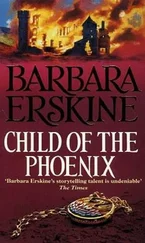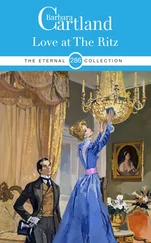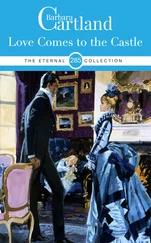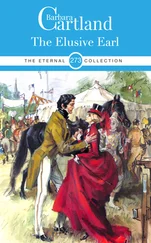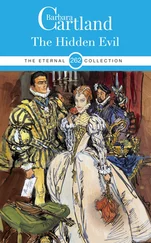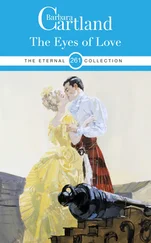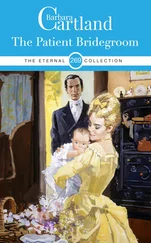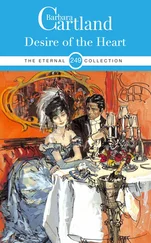“What am I going to do?” she asked herself again and again.
Now was surely the time to embark on that adventure for which she had always yearned. But how could she arrange for that to happen? An adventure was something that came to you, and if one thing was for certain it was that no adventure was going to find her in this tiny backwater that the world had forgotten.
The village which was in an obscure part of the country was seldom visited by anyone outside. This was because the great house in the centre of it, which had been there for ten or more generations, had stood empty and neglected for ten years, since the death of the Earl, Lord Lansdale.
Rena vaguely remembered him, an old man who took no interest in the people who lived in the cottages which belonged to him. He employed very few servants in the house and regrettably few outside, so the villagers knew that they could not look to him for employment.
He had no money. The house, known as The Grange, that he had inherited on the death of the previous Earl, had merely given him a place to lay his head. It did not provide the money to keep it going.
“Nor can he sell the house or any of the lands,” Papa had confided to her, “because they are entailed. They must be passed intact to the next heir.”
“But suppose there is no next heir, Papa?”
“Then it’s a bad business, and everything falls to rack and ruin.”
Sometimes he had visited The Grange, taking Rena with him. The old Earl had liked the child, and once shown her the tower which perched incongruously high up over the centre of the building.
That visit had thrilled her, but the Earl had grown giddy and had to be rescued, and she was never allowed up there again. Nor was she invited to visit the house again, which made her sad, because it was a beautiful place, and she loved it despite its dilapidation.
Her last ever visit had been made ten years earlier, when she was twelve. The old Earl had died in the night, and his funeral was held in The Grange’s private chapel. Like all the other villagers, she had attended. And, like them, she had hoped that soon a new Earl would arrive, put the place in order and bring prosperity back to the neighbourhood.
But it didn’t happen. The Grange, the estate, the fields, all fell into a further state of decay. And the people’s despair grew deeper.
The only excitement just now was the rumour that somebody had come, or was coming, to open up The Grange. Bearing in mind what Papa had said about entails, Rena wondered if this meant a new Earl.
For a day or two the village buzzed. But then nothing happened, and the buzzing died down.
One day Rena went to her father’s study, where he had written his sermons and where she could still feel his presence. As though he were still there, she found herself saying,
“What can I do, Papa? Where can I go, and who can I ask for help?”
She sighed and waited, as if she would hear her father speak and tell her what to do. Then almost as if the words had been said aloud, she found herself thinking of the cross which had been found in the wood, behind The Grange.
She had been about twelve when it had been discovered by some men working amongst the trees. Her father had been asked to inspect it, and had found something that might at one time had been a large, rather roughly made cross but which was now left with only its centre trunk.
He thought the top had somehow got broken. As it was near the stream it had perhaps been washed away. The large piece of wood was thick with mud, but when they washed it clean, they found engraved on it were some words that nobody could make out.
Her father had cleaned the wood until the words could be seen more clearly. He’d given orders for the cross to be driven back into the ground, high above the stream so that the water would not touch it again.
But they were unable to find the missing cross piece, which had made it look a little strange as it stood surrounded by the trees.
“How can you be certain it is a cross?” she remembered her mother asking, as they walked through the wood.
“You’ll be as certain as I am when you see it now,” the Reverend Colwell had told her. “It’s been cleaned and we can read what is engraved on it.”
It was spring and the trees were coming into blossom. Rena, holding her father’s hand, had been thrilled to walk through the woods which belonged to The Grange, and had thought what a wonderful place to play hide-and-seek.
At last they saw the tall, impressive piece of wood, that her father was so convinced was a cross. When she drew nearer, she saw the writing on it, and her father had translated:
“YE WHO ASK FOR HELP WILL FIND IT WHEN YE PRAY TO ME.”
“That’s what convinced me,” her father said when he read it aloud, “that it was originally a cross. I think perhaps it was placed here hundreds of years ago, when the house was being built or perhaps even before that.”
“It’s certainly very interesting,” her mother had said. “I only hope the people who prayed there got what they wanted.”
“If it has lasted so long, I’m sure they did,” her father replied.
He had given his orders that the cross should stay here, and it was still in place ten years later. Now it was the only thing left to which Rena could take her troubles, hoping that if she prayed hard enough some help might come to her.
Perhaps, she thought, it might even be her father telling her to go there.
“It’s really a very simple problem,” she told herself. “How to stop myself starving to death. What could be simpler than that?”
She often talked to herself in that ironic way, presenting her difficulties with a slightly wry twist. Her father was sometimes a little shocked by what he perceived as her levity. But Rena had found a sense of humour a great help in confronting the world.
She set out now to find the cross. It was spring again, a beautiful warm spring. She didn’t wear her best coat, but slipped on the jacket she used in the garden.
She walked through the village until she saw the gates of The Grange, which, unusually, were standing open. So perhaps the new Earl has really arrived, she thought hopefully.
How neglected it was, she thought. It was quite obvious that no one had worked on the drive. When she moved into the fields on one side of it, they, too, had been neglected. It was depressing. But the birds were singing, the sun was shining, and sometimes she saw a rabbit or a squirrel moving through the grass ahead of her.
Just before her were the woods, with the trees in bud. And there was the stream, and beside it what she always thought of as her father’s cross, looking incredibly lovely because the kingcups had come into flower at the foot of it. Golden in the sunshine flickering through the trees, they made the cross itself seem to stand out firmly because the wood was dark.
She read again the words carved on the cross which she could see quite clearly, and instinctively she began to pray. As she did so, she looked down at the kingcups, and one side of them she saw a thistle. It was green and ugly and was spoiling one side of the cross.
It seemed dark and mysterious. Then she remembered that she had a pair of gloves in the pocket of her jacket. They were thick and lined with leather.
When she put them on, she attacked the thistle, finding that she had to pull it with both hands as hard as she could before it finally came out.
And then, she saw to her astonishment that attached to the roots were several coins. She picked them up and started to rub away the mud.
Then stared, thinking she must be dreaming.
They were gold.
And there were more of them in the hole she had made in pulling out the thistle. They were ancient, maybe two hundred years old.
Читать дальше

